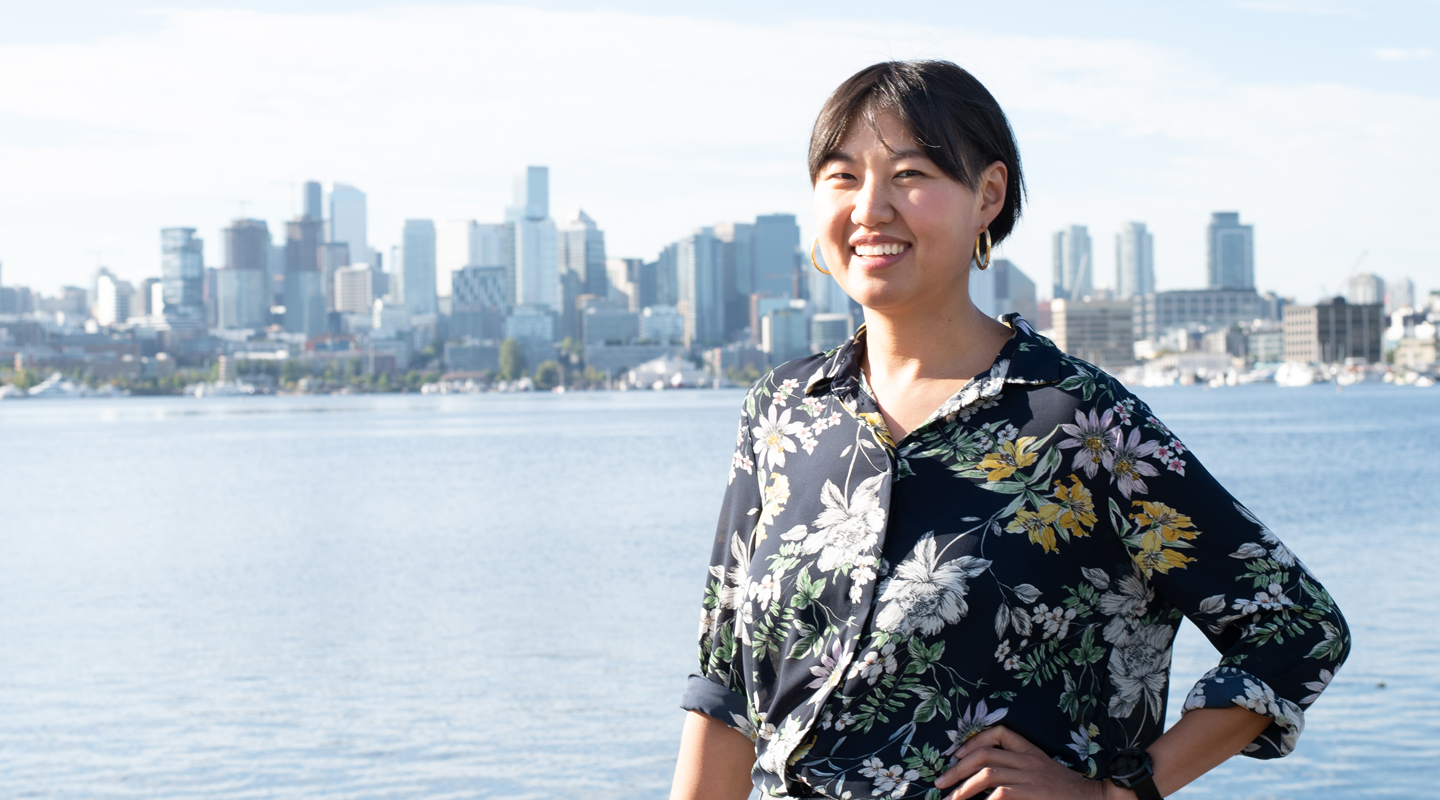Scientific papers can be daunting, with convoluted findings, baffling jargon and key takeaways buried in a blur of details. Lucy Lu Wang uses artificial intelligence (AI) to make these documents more accessible and usable. “I’m trying to find better ways of surfacing relevant information and making it discoverable,” says Wang, who joins the iSchool faculty as an assistant professor this fall.
Wang comes to the iSchool from Seattle’s Allen Institute for Artificial Intelligence (AI2), where she has worked several years as a postdoctoral young investigator. At AI2, she helped develop methods to extract useful information from scientific documents using data science techniques and natural language processing — the branch of AI that enables computers to process human language, rapidly summarizing large volumes of text.
Most of her work focuses on biomedical research, where new findings are constantly discovered and published. Those publications can be challenging for people seeking cutting-edge medical information. “We’re trying to help health-care consumers make better and more data-driven health-care decisions,” says Wang, who has a bachelor’s degree in physics from the Massachusetts Institute of Technology, a master’s in biomedical engineering from Johns Hopkins University, and a Ph.D. in biomedical informatics and medical education from the University of Washington.
To help readers decipher medical research literature, Wang and her AI2 team created an experimental prototype called Paper Plain, an interactive interface with automated supports for users. Those supports include reading guides, definitions of unfamiliar terms, plain language summaries and key questions that guide health-care consumers, clinicians, clinical researchers and others to the answers they seek.
Wang also helped develop a search system called SUPP.AI that looks at almost 60,000 interactions between medications and the dietary and nutritional supplements many people routinely take. SUPP.AI was an idea of Wang’s that was quickly prototyped during the AI2 annual hackathon, she says. It now serves more than 25,000 people a month.
“The goal of both Paper Plain and SUPP.AI is not to replace the clinician-patient relationship; it’s to augment that relationship with more information to help people have better conversations with medical providers, help them ask better questions, and maybe feel like they have a way to get informed.”
Wang and her AI2 team were quick to respond when COVID-19 broke out in 2020, setting off a deluge of new scientific documents on the pandemic. In a narrow window of time, they helped other researchers create a text-mining database to dig up nuggets of relevant information for those trying to keep up. “New results were emerging every day and a lot of them were not vetted or peer-reviewed,” says Wang. “We needed a way to distribute these results quickly to data scientists and computing researchers so they could make them accessible to policymakers and other audiences.”
As the flood of COVID findings continues — several hundred new papers are published every day — the database evolves. “We continued to release an iteration of the text-mining dataset weekly, sometimes daily, over the past two-plus years,” says Wang.
Wang is part of AI2’s Semantic Scholar team. Semantic Scholar is an AI-powered tool that searches more than 200 million academic research papers. Daniel Weld, chief scientist and general manager of the team, describes Wang as a new leader in health informatics.
“It has been tremendously exciting to watch Lucy’s trajectory at AI2, from intern and hackathon star to Young Investigator and now assistant professor at UW — I can’t wait to see what she does next,” says Weld, professor emeritus at the UW’s Paul G. Allen School of Computer Science and Engineering.
Wang was born in China and spent much of her life on the East Coast. Seattle is her first West Coast city, and settling in here suits the young adventurer, who cycles and hikes when she’s not cooking or making her specialty sourdough bread with hand-milled rye berries, a recipe she concocted during the pandemic.
She’s also an avid mountain climber. Wang has already summited Mount Rainier, Mount Adams and Mount St. Helens. They’re just starters. “I would love to climb Mount Baker and Glacier Peak and other Cascade volcanos at some point over the next couple of years,” she says. “Now I will have the opportunity to do that.”
She is excited about her move to the iSchool, where she’ll be teaching a course in data models and continuing her AI research. “The iSchool is a unique, highly interdisciplinary place with a long history of really impactful research,” she says. “I’m looking forward to sharing an environment with colleagues from whom I can draw new ideas to apply to the problems I’m interested in.”
